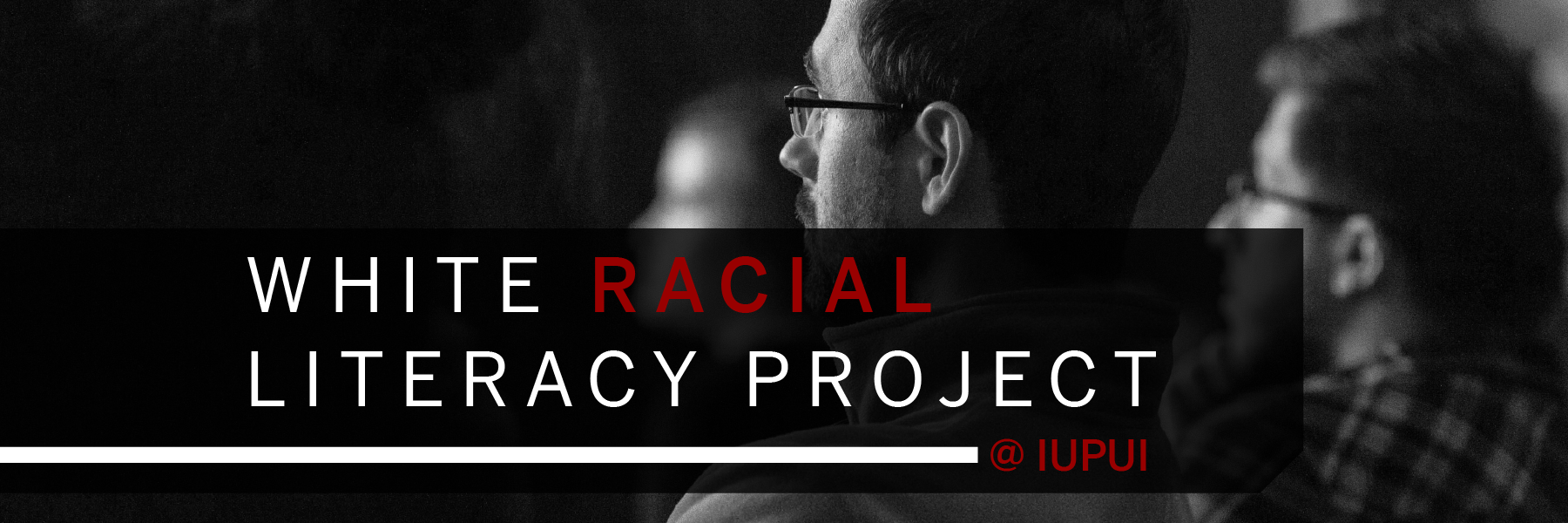What is whiteness?
Whiteness is a complex concept, but largely refers to the multiple, interconnected ways that, as a group, those who are defined as being White benefit from a host of social, political, and cultural advantages.
The study of Whiteness examines key questions, including: What does it mean to be White? When did White become a category? How has the meaning of whiteness and who is considered white changed in the course of U.S. history? Is there such a thing as White culture (and, if so, what is it)? What is White privilege? How does whiteness intersect with other social identities such as gender, social class, and ability? How does whiteness shape how White people and people of color think about and discuss (or not) issues like racism?
A solid summary of the history of whiteness may be found here.
A solid understanding of the construction of whiteness may be found here.
What is white racial literacy?
As explained by Dr. Robin DiAngelo, our first WRLP speaker and author of What Does It Mean to Be White? Developing White Racial Literacy
“White Racial Literacy” means coming to terms with and grasping a sense of consciousness regarding what it means to be White in a society that proclaims race is meaningless yet is deeply divided by race.
Given the pervasive racial inequality and segregation in society, most White people cannot answer questions related to White privilege and racism and often experience resistance and discomfort when such questions arise. Robin DiAngelo argues that a number of factors make explorations into these questions difficult for White people including miseducation about what racism is; ideologies such as individualism and colorblindness; defensiveness; and a need to protect (rather than expand) their worldviews. These factors contribute to what she terms White racial illiteracy.
Can you explain what “disrupting whiteness” means?
Disrupting whiteness means actively working to create a more racially just world, specifically by naming and countering policies, practices, attitudes, and behaviors that maintain whiteness. Since whiteness thrives in large part in being considered “normal,” even the act of revealing whiteness can be considered a form of disrupting whiteness. Disrupting whiteness does not mean causing harm to White people. Whiteness is problematic for everyone, including White people.
Is the WRLP racist against White people?
No. The WRLP recognizes that White people have a key role and responsibility in dismantling racism. The WRLP states that by naming and understanding whiteness, White people can better understand what whiteness is, what whiteness does, and consider approaches to working toward a more racially equitable society. The White Racial Literacy Project will help transform IUPUI through its explicit focus on racial equity, a fundamental element of social change.
Can People of Color be involved in the WRLP?
Yes. There are opportunities for People of Color to be involved. We offer a caucus group for People of Color to engage in dialogue with each of the featured experts in our WRLP Speaker Series. In addition, the WRLP offers a teaching for racial equity series that is open to any IUPUI instructor. People of Color can also be involved by encouraging white colleagues and students to participate in the WRLP.
Why are people placed in “caucus” groups?
White caucuses are an important mechanism for people who identify as White and/or have White skin privilege to do our own work. It provides us an environment and intention to authentically and critically engage in whiteness, White privilege, and hold each other accountable for change. We explore how to recognize whiteness and White privilege, identify and interrupt our internalized dominance, and collectively develop strategies for liberation and change. Caucuses are our group-level work (building upon our individual self work) so that we individually and collectively can be effective partners for change.
Is the WRLP an IUPUI approved program?
Yes. The WRLP is supported through the Chancellor’s Welcoming Campus Innovator funding and is one of two funded projects representing the theme “Communicating Who We Are.” The WRLP recognizes that diversity is a campus core value and creating a diverse and inclusive community is critical to fulfilling IUPUI’s mission.
The WRLP is also funded through a generous Racial Justice and Equity Grant from the Lumina Foundation in partnership with Rockefeller Philanthropy Advisors. Click here to read about the WRLP in IUPUI News.
What is the best way to find out information about the WRLP?
To stay up to date on future offerings, subscribe to our newsletter.


